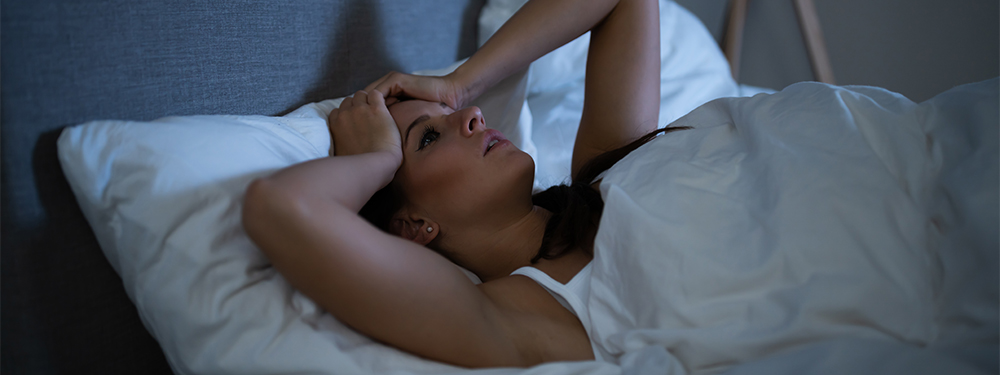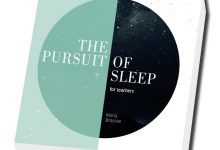
Maria Brosnan, founder of Pursuit Wellbeing and author of The Pursuit of Sleep for Teachers explains why sleep must be prioritised to help reduce stress levels and improve wellbeing
Now is not an easy time to be in education. We have all felt the tumultuous tide of decisions, u-turns, and change, after change, after change. The situation in schools as I write now may well not be the situation as you read this.
I’ve been working with teachers and educators for 15 years and I have never seen the daily ebb and flow of changing demands taking its toll more than now. As a wellbeing specialist, the thing that concerns me most is poor sleep.
The Teacher Wellbeing Index 2020, by the Education Support Partnership revealed that 52 per cent of teachers had reported difficulty sleeping. This likely comes as no surprise if you are one of those teachers, but we should not accept this as normal; more than half of our teachers and school leaders are failing to get a good night’s sleep.
In this time of challenge and change, we must prioritise sleep
This might seem counterintuitive. Surely in the midst of so many demands, we can let the ‘soft stuff’ slide, and just focus on our work? The problem with this logic is that without sleep we are more susceptible to stress and in fact less able to do our jobs. One study showed that we are 60% more emotionally reactive after just one bad night’s sleep. This can quickly lead to the vicious cycle of stress and sleeplessness many of us seem to inevitably find ourselves in.
But is it inevitable? Focusing on good sleep, by making small, simple changes to our daily routine, can reduce our stress levels and make us more able to thrive, even in the midst of difficult circumstances. And I really do mean simple: something as seemingly insignificant as taking five minutes to breathe deeply in the evening could make a world of difference.
We can see how the slide into poor sleep starts, so how do we stop it? Often, the vicious cycle can begin with a seemingly innocent stressor. This is not difficult to imagine if you are an education professional – a new announcement, a nasty email, suddenly having to design online lessons – the list is endless. The bottom line is that something happens.
Next, we respond
Sometimes this is automatic and beyond our conscious control, but there are times when we get to choose how we react to the stressful experience. There is a moment, albeit small, in which we can pause and think before we respond. This then governs our physiological response. Depending on how we have responded to the stressor, we either experience the ‘stress response’ in our bodies as a result, or we don’t.
When we trigger the stress response, it takes our bodies out of a state of natural balance (known as ‘homeostasis’) and into a state of ‘dysregulation’. Part of this physiological response is the release of around 1300 biochemicals like adrenaline and cortisol, to help us to respond to the stressor. Evolutionarily speaking this would have given us the ability to run, fight or hide from predators.
Once released, many of these biochemicals can linger in our bodies for eight hours or more, acting like a ‘pint of espresso’, and making sleep difficult even if we’re exhausted. Even a stressor much earlier in the day – a new announcement mid-afternoon – can affect our sleep at night.
Our bodies are naturally highly efficient at returning to balance. But when stress becomes repeated, or chronic, as is almost unavoidable in the current set of circumstances, it becomes harder for the body to get back to homeostasis, so sleep suffers. The resulting poor sleep doesn’t just make us feel tired; it also stops our body from efficiently repairing itself; and this, in turn, leads to feeling rundown, an increase in health issues, and the commonly experienced school holiday ‘collapse’.
We can break the cycle
The good news is that we can break the cycle. Small steps can pave the way for a virtuous cycle of lower stress levels, better sleep, and a healthier, calmer body. From breathing well to eating well; from building exercise into each day to creating a bedtime routine. Over time these small steps lead to a calmer day-to-day life, better sleep, healthier bodies, and vastly improved wellbeing.
It might be hard to know where to begin but – put simply – the single most important change we can make is to start putting our own self–care first; prioritising our sleep is the one thing that will help us most. In this season, look inward to your own wellbeing before you look outward to the task at hand and – above all – be gentle with yourself.
Download your free copy of The Pursuit of Sleep for Teachers
Discover how small changes to your daily habits can make a big difference to your sleep, learn more about the science behind sleep and wellbeing, and get 95 tips for better sleep.
You can also get in contact with Maria by emailing maria@pursuit-wellbeing.com.
References
Education Support, Teacher Wellbeing Index 2020,
https://www.educationsupport.org.uk/resources/research-reports/teacher-wellbeing-index-2020
The Guardian, The teacher’s guide to sleep and why it matters (11 November 2014), https://www.theguardian.com/teacher-network/teacher-blog/2014/nov/11/good-night-teacher-guide-sleep

